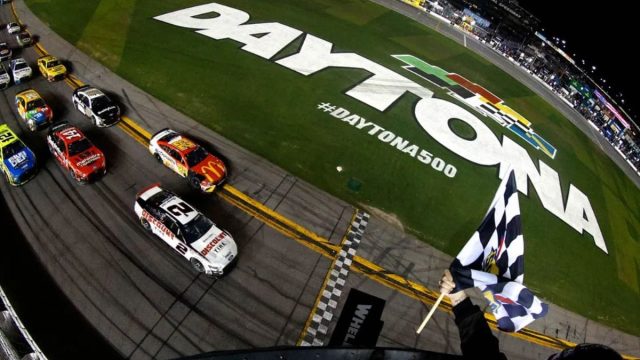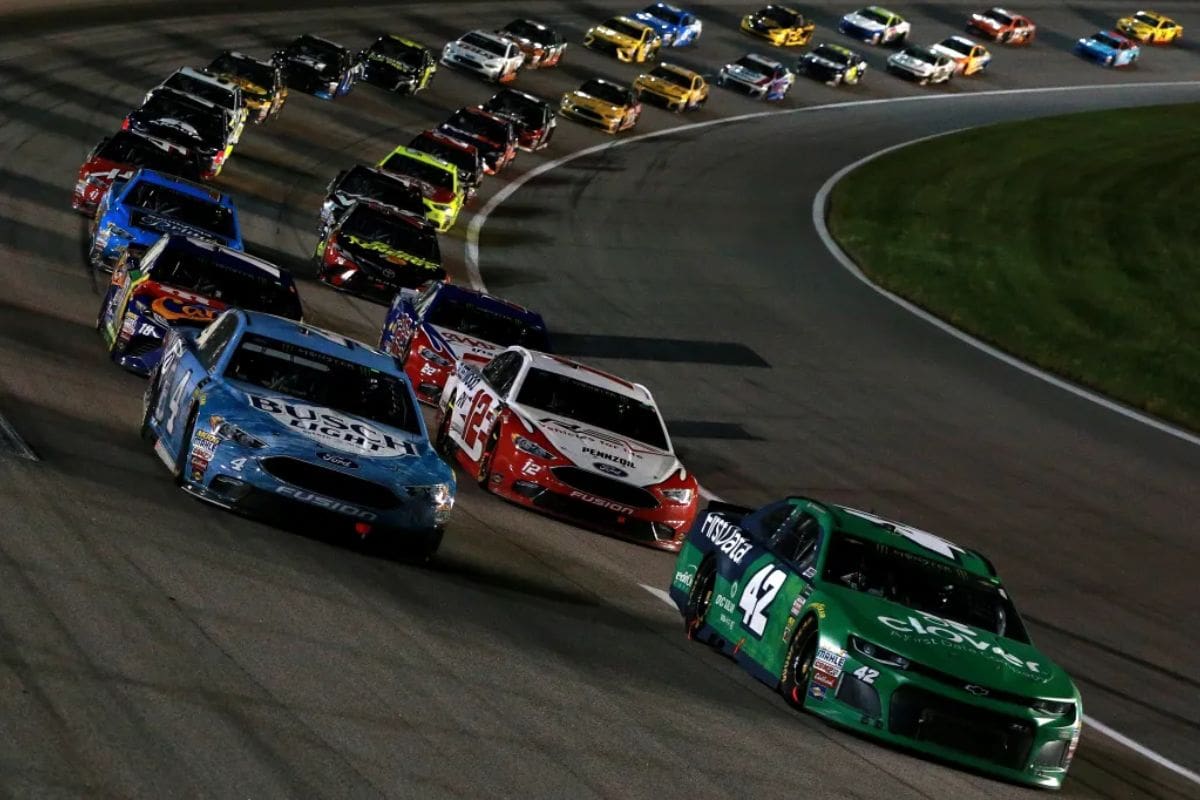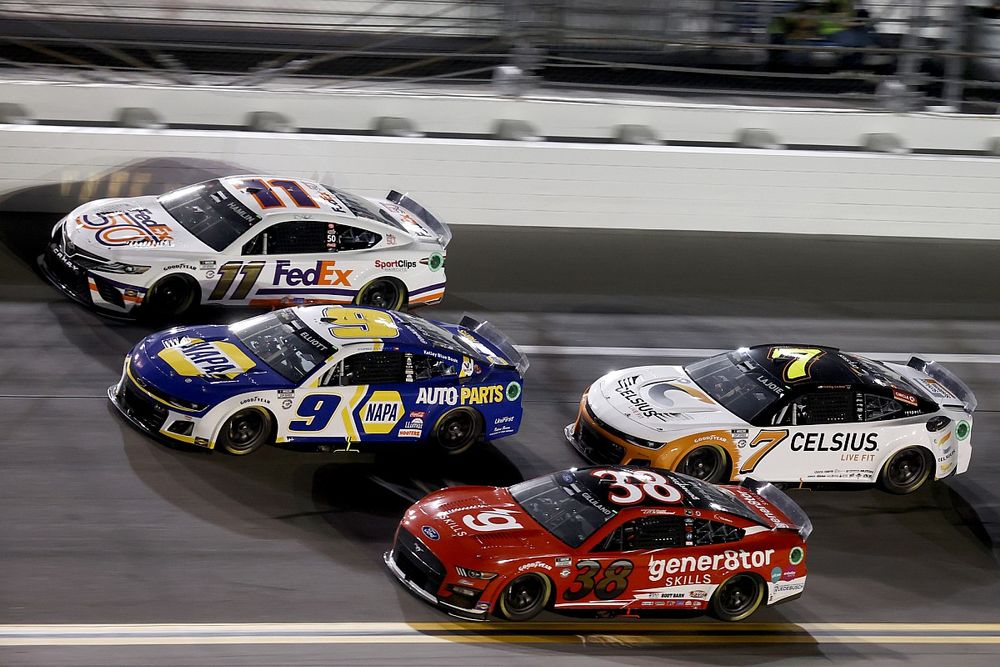NASCAR’s Daytona Prize Pool Controversy: The recent uproar surrounding NASCAR’s Daytona Prize Pool highlights a growing concern among fans regarding the pronounced disparities in prize money across its diverse racing series. The staggering contrast between the Cup Series, boasting a prize pool exceeding $9 million, and the Truck Series, which offers a mere $672,000, has prompted questions about equity and the future of driver participation. This situation not only affects the competitive landscape but also poses notable implications for talent development and the general viability of NASCAR. As the debate unfolds, the need for a closer examination of revenue dynamics becomes increasingly apparent.
Key Highlights
- The prize pool for the NASCAR Cup Series is significantly higher than that of the Xfinity and Truck Series, creating disparity among competitors.
- Fans express outrage at the perceived unfairness of prize distributions, particularly regarding the low payouts in the Truck Series.
- The current prize structure discourages talent from pursuing careers in lower-tier series, threatening their viability and competitiveness.
- Proposed reforms include restructuring prize pools and increasing sponsorship investments in lower-tier series to promote equity.
- Addressing these disparities is crucial for NASCAR’s long-term growth and attracting a diverse fanbase.
Upcoming Daytona Race and Playoff Implications
Anticipating the upcoming Daytona race, the stakes have never been higher as drivers vie for crucial playoff positions in the NASCAR Cup Series. With only two races left in the regular season and four coveted playoff spots up for grabs, the Daytona International Speedway serves as a critical battleground where fortunes can change in an instant.
This event is not merely another race; it is a high-stakes showdown that will considerably influence the playoff landscape.
For those on the playoff bubble, the stress mounts exponentially. Drivers must secure either a win or accumulate essential points to guarantee their advancement into the postseason. With Daytona’s unique superspeedway characteristics, including the potential for chaotic pack racing and unexpected outcomes, every driver will be acutely aware that a single miscalculation could derail their championship aspirations.
Conversely, the frontrunners are not merely looking to qualify; they are hunting for extra playoff points that can provide a tactical advantage as they enter the playoffs. This duality of objectives—survival for the underdogs and opportunism for the leaders—creates an electrifying atmosphere that is quintessential to NASCAR.
As the engines roar to life, the Daytona race will certainly be a display of skill, strategy, and sheer resolve. The implications of this race extend far beyond the checkered flag, as it sets the stage for the playoff battles to come, making it an unmissable event for racing enthusiasts and competitors similarly.
Prize Money Disparity Between Series
As the Daytona race approaches, the excitement surrounding the event is not limited to the competitive drama on the track; it also encompasses the financial stakes involved. This year, however, the disparity in prize money allocated across different series has ignited controversy among fans. The pronounced contrast in financial incentives raises questions about equity within NASCAR’s competitive framework.
The reported prize pools for the Daytona race reveal a considerable imbalance:
- Cup Series: $9,193,568
- Xfinity Series: $1,886,123
- Truck Series: $672,572
This marked disparity is troubling, especially considering the efforts of drivers across all tiers to achieve excellence. The Cup Series, as the premier division, naturally commands a higher prize pool, yet the extent of the gap has led to concerns about the perceived value of lower-tier competitions.
Fans argue that such disparities may deter up-and-coming talent from pursuing careers in the Truck and Xfinity Series, as the financial rewards seem disproportionately skewed. Moreover, this situation may create a perception that only the top series is worthy of investment, potentially undermining the growth and development of the sport at multiple levels.
Purses for Daytona & Milwaukee, all payouts, all positions plus contingency awards, contributions to year-end points funds, etc, plus for Cup, charter payouts based on racing each event, three-year historic performance, etc:
Cup: $9,193,568
Xfinity: $1,886,123
Truck: $672,572
— Bob Pockrass (@bobpockrass) August 21, 2024
As NASCAR prepares for this marquee event, it will need to address these concerns to guarantee the long-term viability and attractiveness of its entire racing ecosystem. Balancing the prize money across series could cultivate broader fan engagement and encourage competitive parity.
Comparison of Prize Pools
The clear contrast in prize pools across NASCAR’s diverse series highlights a notable imbalance that has persisted over the years. The NASCAR Cup Series, with a staggering prize pool of $7,925,121 during the recent Richmond race, dwarfs the Truck Series, which offered a mere $744,784. This disparity demonstrates a fundamental issue within the sport, where the financial incentive for participants varies dramatically depending on the series in which they compete.
The Xfinity Series, while performing better than the Truck Series, still falls short when compared to the lucrative Cup Series. This raises questions about the sustainability and attractiveness of lower-tier series for emerging talent and seasoned drivers similarly.
The current prize structure not only impacts drivers’ earnings but also influences team budgets, sponsorship opportunities, and total investment in the sport. Examining the numbers reveals that the Truck Series’ total prize pool is over ten times smaller than that of the Cup Series.
Such notable gaps in financial rewards foster a perception of inequity and may deter potential participants from pursuing careers in lower-tier divisions. Additionally, the long-standing nature of this issue indicates a systemic problem within NASCAR’s prize distribution model that has seen little progress toward achieving parity.
In an era where competitive balance is increasingly valued, addressing these disparities is vital for enhancing the appeal of all series and ensuring the future growth of NASCAR. The current prize pool structure not only shapes the competitive landscape but also the very fabric of the sport itself.
Fan Reactions to the Discrepancy
How can such a considerable disparity in prize pools exist without provoking a stronger reaction from fans? The pronounced differences between the prize distributions in NASCAR’s numerous series—most prominently the Truck Series—have sparked outrage among devoted followers.
Despite the Truck Series not being as popular as the Cup Series, fans believe the disparity is unjustified. The figures released from the Las Vegas purse exemplify this disparity vividly: $9,386,054 for the Cup Series, $1,801,278 for Xfinity, and a mere $736,214 for the Truck Series.
“The truck purses need to be increased.”
“How the fuck do the truck teams function?”
“Good to see you still get a granola bar and a hearty pat on the back for running in trucks.”
“How much does the winner of the truck race actually get?”
“Fans should BUY TICKETS to Truck races then to help boost the cash pool for them to be raised.”
-(fans)
Fans have expressed their concerns through multiple platforms, highlighting three critical areas of discontent:
- Respect for Drivers: Many fans argue that truck drivers, who exhibit remarkable skill and dedication, deserve a more equitable share of the prize money.
- Investing in the Future: Supporters contend that increasing prize pools for the Truck Series could attract more talent and improve the general competitiveness of the sport. A thriving Truck Series could serve as a feeder for the Cup Series, benefiting NASCAR as a whole.
- Perceived Neglect: The continued low purses are seen as indicative of NASCAR’s prioritization of its more prominent series, leading to feelings of neglect among Truck Series supporters.
The uproar encapsulated in these reactions signals a critical need for NASCAR to address the perceived inequities in its prize distribution structure.
Proposed Solutions and NASCAR’s Revenue Dynamics
Addressing the concerns raised by fans regarding the disparity in prize pools requires an extensive understanding of NASCAR’s revenue dynamics and the mechanisms that influence prize distributions across its multiple series.
Historically, the allocation of prize money has been contingent upon the tier’s popularity, with the Cup Series commanding the lion’s share of revenue generated from television contracts. This structure inherently creates a considerable gap between the prize pools of the Cup, Xfinity, and Truck Series, which has been a long-standing characteristic of NASCAR’s financial model.
One proposed solution to mitigate this disparity involves fan engagement, as suggested by a concerned spectator advocating for increased ticket sales for Truck Series races. By increasing attendance, fans can directly influence the revenue generated at these events, which could lead to larger prize pools.
Furthermore, NASCAR could investigate revising its revenue-sharing agreements to allocate a more fair percentage of television and sponsorship revenues across all tiers.
Moreover, raising marketing efforts for the Truck Series could improve its visibility and attractiveness, potentially drawing in sponsorship deals that rival those of the more popular series.
News in Brief: NASCAR’s Daytona Prize Pool Controversy
The ongoing Daytona Prize Pool controversy highlights a crucial issue within NASCAR regarding prize money disparities among its racing series. This imbalance not only undermines the financial viability of lower-tier series but also poses a threat to the comprehensive growth and sustainability of the sport.
Addressing these disparities is vital for creating talent development and ensuring competitive integrity across all levels of NASCAR. A reevaluation of revenue distribution may be necessary to promote equity and improve fan engagement.
ALSO READ: NASCAR’s Michigan Delay: Brett Griffin Slams Scheduling Blunders



